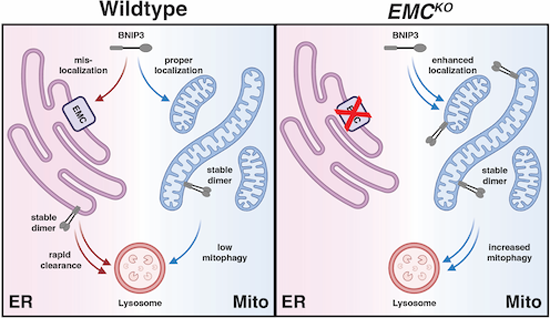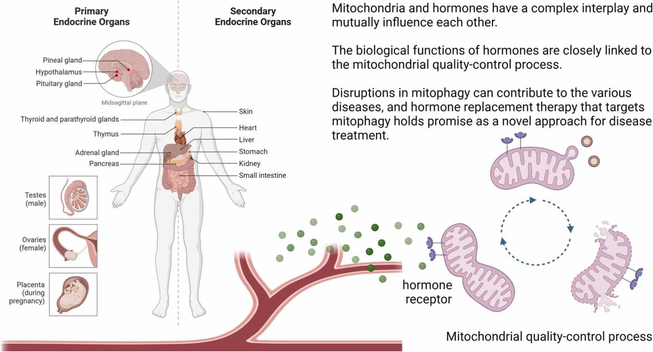
Fully Funded PhD Position in Cancer Research
Post a job in 3min, or find thousands of job offers like this one at jobRxiv!

Open PhD student position
Post a job in 3min, or find thousands of job offers like this one at jobRxiv!

Open PhD student position
Post a job in 3min, or find thousands of job offers like this one at jobRxiv!

Open PhD student position
Post a job in 3min, or find thousands of job offers like this one at jobRxiv!

Open PhD student position
Post a job in 3min, or find thousands of job offers like this one at jobRxiv!

Open PhD student position
Post a job in 3min, or find thousands of job offers like this one at jobRxiv!

Research uncovers specific protein interactions needed for cells to break down and remove damaged mitochondria
Autophagy is a process used by cells as a recycling system to transport and break down organelles and other cytosolic components, which become enveloped in a membrane called the autophagosome. When this involves the removal of damaged mitochondria, it is known as mitophagy.
The ER membrane protein complex restricts
#mitophagy by controlling BNIP3 turnover
Jose Delgado, Samantha Liu, Christopher Shoemaker et al
https://www.embopress.org/doi/full/10.1038/s44318-023-00006-z• Hormones
#metabolism is intricately linked to
#mitochondrial quality-control.
•
#Hormones regulate both mitochondria &
#mitophagy.
• Dysregulated mitophagy contribute to development of
#endocrine disorders.
• Targeting mitophagy is an innovative approach for treating ED.
https://www.sciencedirect.com/science/article/pii/S0753332223012660Circadian nature of #mitochondria
NR1D1 bridges #circadian clock & UC, controlling BNIP3-mediated #mitophagy & representing potential therapeutic target. Its agonist, SR9009, shows promise in UC symptom alleviation.
https://www.mdpi.com/1422-0067/24/18/14222


Uncovering the Novel Role of NR1D1 in Regulating BNIP3-Mediated Mitophagy in Ulcerative Colitis
Background: Ulcerative colitis (UC) is a chronic, incurable condition characterized by mucosal inflammation and intestinal epithelial cell (IEC) damage. The circadian clock gene NR1D1, implicated in UC and the critical mitophagy process for epithelial repair, needs further exploration regarding its role in mitophagy regulation in UC. Methods: We created a jet lag mouse model and induced colitis with dextran sulfate sodium (DSS), investigating NR1D1’s role. Intestinal-specific Nr1d1 knockout mice were also generated. RNA sequencing, chromatin immunoprecipitation (ChIP), and dual-luciferase reporter assays helped ascertain NR1D1’s regulatory effect on BNIP3 expression. The mitochondrial state in IECs was assessed through transmission electron microscopy, while confocal microscopy evaluated mitophagy-associated protein expression in colon tissue and CCD841 cells. Cell apoptosis and reactive oxygen species (ROS) were measured via flow cytometry. Results: We observed reduced NR1D1 expression in the IECs of UC patients, accentuated under jet lag and DSS exposure in mice. NR1D1 ablation led to disrupted immune homeostasis and declined mitophagy in IECs. NR1D1, usually a transcriptional repressor, was a positive regulator of BNIP3 expression, leading to impaired mitophagy, cellular inflammation, and apoptosis. Administering the NR1D1 agonist SR9009 ameliorated colitis symptoms, primarily by rectifying defective mitophagy. Conclusions: Our results suggest that NR1D1 bridges the circadian clock and UC, controlling BNIP3-mediated mitophagy and representing a potential therapeutic target. Its agonist, SR9009, shows promise in UC symptom alleviation.

